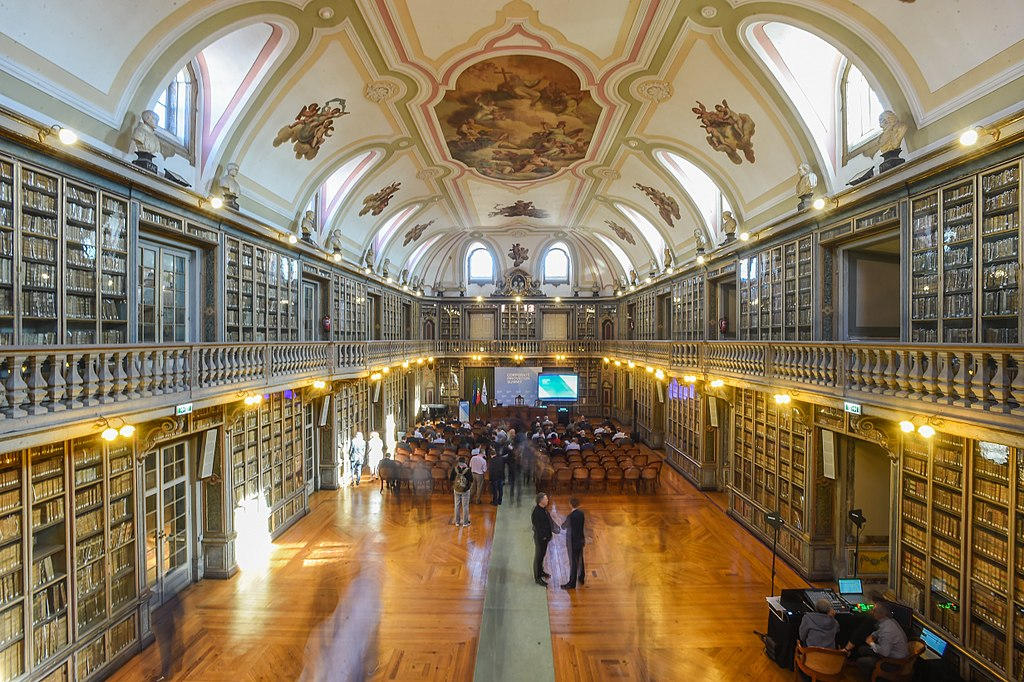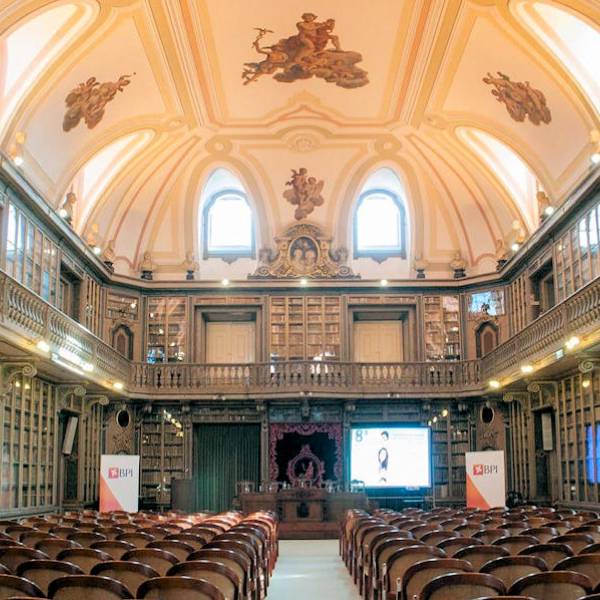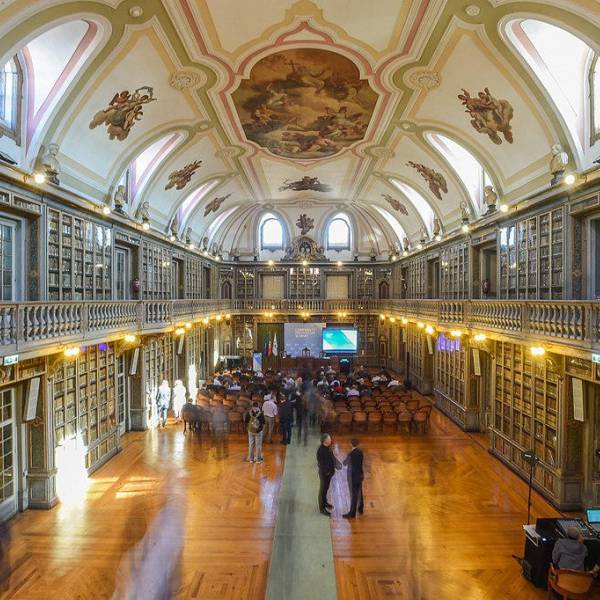The Academy's inception was marked by the patronage of Queen Maria I, who granted her permission and support to establish this scientific institution. The first president and influential mentor of the Academy was the 2nd Duke of Lafões, while the first secretary was the Abbot Correia da Serra. Both Lafões and Correia da Serra were ardent opponents of the Marquis of Pombal's regime, and their involvement in the Academy reflected their stance against the emphasis on humanities education enforced by Pombal. At its founding, the Academy comprised two classes: one dedicated to Sciences and the other to Fine Letters.
In 1783, Queen Maria I and King Pedro III proclaimed themselves as patrons of the Academy, bestowing upon it the title of "Royal Academy". Throughout the 19th century, particularly in the mid-1830s, the Academy embarked on significant endeavors such as the nationwide planting of olive trees and the establishment of a Zoology department under the guidance of Father Joseph Mayne. By 1851, the Academy had two autonomous classes, each publishing their respective bulletins: one for Letters and another for Sciences.
Following the establishment of the Republic, the institution was renamed the Academy of Sciences of Lisbon. Its primary headquarters, located at Rua da Academia das Ciências, No. 19, in the lower part of Bairro Alto in Lisbon, has been housed in the former Convent of Nossa Senhora de Jesus of the Third Order of Saint Francis since October 1834. Over its extensive history, the Academy has had six official addresses, starting with the Palace of Necessidades after the dissolution of religious orders. The transfer of the convent building to the Academy, including its library, Museum of Natural History and Artifacts, and painting gallery, occurred through royal decrees in October 1834.
Lisbon.vip Recommends
The Academy has received prestigious honors over the years. On December 18, 1991, the institution was classified as a public utility by Decree-Law No. 448/91, recognizing its outstanding contributions to the scientific and cultural development of Portugal. The classification as a public utility granted the Academy various benefits and reinforced its position as a pillar of Portuguese intellectual life. In recent decades, the Academy has continued to thrive, with its activities encompassing numerous domains of knowledge and research.
Academia das Ciências de Lisboa has made significant contributions to scientific research, both in Portugal and internationally. Its researchers and fellows have conducted groundbreaking studies across a wide range of disciplines, including mathematics, physics, chemistry, biology, geology, linguistics, literature, history, and more. Through its research projects and publications, the Academy has advanced knowledge and understanding in various fields, furthering the progress of scientific inquiry and promoting intellectual curiosity.
Additionally, the Academy plays a crucial role in preserving and promoting the Portuguese language and literature. It fosters the study and appreciation of Portuguese linguistic heritage, contributing to the development and enrichment of the language through its linguistic research and advisory activities. The Academy's collaboration with the Brazilian Academy of Letters highlights the importance of maintaining linguistic ties between Portugal and Brazil and reinforcing the unity of the Portuguese-speaking world.
Moreover, Academia das Ciências de Lisboa maintains strong ties with other national and international academic institutions. It collaborates with numerous European and global academies, participating in joint initiatives, scientific exchanges, and knowledge-sharing programs. These collaborations foster international cooperation, enhance research opportunities, and facilitate the exchange of ideas and expertise among scholars from different countries and cultural backgrounds.
In recent years, the Academy's historical significance has been further amplified by the discovery of mass graves within its premises. These graves contain the remains of both friars who resided in the convent and victims of the catastrophic 1755 earthquake that struck Lisbon. The unearthing of these graves has added a captivating historical dimension to the Academy's story, sparking renewed interest and prompting further research and exploration. This discovery not only sheds light on the tragic events of the past but also offers valuable insights into the social and cultural context of the time, allowing historians and archaeologists to deepen their understanding of Lisbon's history and its enduring impact on the present.
In conclusion, the Academy of Sciences of Lisbon (ACL) stands as a venerable institution with a rich history and a diverse range of missions. From its founding during the Enlightenment period to its current role as a leading scientific and cultural institution in Portugal, the Academy has played a vital role in advancing knowledge, promoting research, and fostering intellectual exchange. Through its scientific endeavors, linguistic research, and collaborations with national and international partners, the Academy continues to contribute to the progress of science, the preservation of Portuguese heritage, and the dissemination of knowledge, solidifying its position as a beacon of intellectual excellence in Portugal and beyond.





